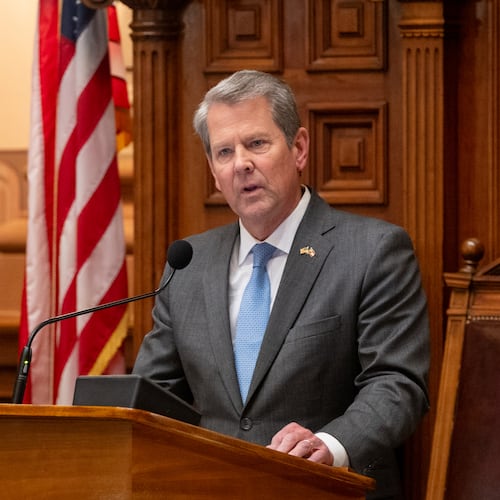Government employees who have reported sexual harassment in their workplace will have a legal avenue to defend themselves from retaliation from their employers, under a bill passed by the Georgia Senate on Monday.
The Senate voted unanimously in favor of House Bill 1390, which now heads to the governor’s desk for a signature.
The bill codifies the right for a city or county employee who reported workplace harassment to take legal action against their employer if they are faced with retaliation. The legislation would create a more navigable path for a complainant to file a lawsuit and have their case heard in court.
“If you’ve experienced harassment, gone to your superiors or employers and said ‘I’ve experienced this harassment’ and then they fire you or otherwise retaliate, this would create a new cause of action for that employee,” said Sen. Elena Parent, D-DeKalb County, who sponsored the bill in the Senate.
The legislation was filed by Rep. Teri Anulewicz, D-Cobb County, along with House Bill 1389. That bill, which would have provided more broad protections for all whistleblowers by providing a right of action for employees in other workplaces, stalled in committee. However, House Bill 1390 passed with a unanimous vote in the House on March 15.
The bill came in the wake of an investigation in Gwinnett County that determined a police chief and male captain were sexually harassing the only woman on a police department’s command staff.
Capt. Tawyna Gilovanni told the internal investigator that the Lawrenceville Police Department where she worked had a “good ol’ boy” culture that devalued women. She said her male counterpart, Capt. Ryan Morgan, would ask her to send him nude photos and former police chief Timothy Wallis once called her a “Hooters girl” for wearing a pink T-shirt on a day when the air conditioning went out in the police headquarters.
Morgan resigned from his position in December before the investigation was complete, and Wallis left the department in February after a conversation with Lawrenceville’s city manager.
But Gilovanni, who still works for the agency, says she has faced retaliation under the man tapped to lead the department out of the scandal. In a U.S. Equal Employment Opportunity complaint filed last month, the captain said now-sitting chief Maj. Myron Walker cut her out of communication within the department and was rumored to have plans to move her to another unit.
“I believe that it is Chief Walker’s goal to force me to resign my employment or to terminate me for pretextual reasons,” Gilovanni said in the written complaint.
Anulewicz said Gilovanni’s experience is part of what pushed her and other legislators to bring forth the bill so urgently. She said while the EEOC provides a layer of protection for whistleblowers on a national level, nearly 95% of all EEOC complaints are rejected.
“We’ve known we needed to have these protections,” she said,” but seeing it as bare and laid out as blatantly as it was in Lawrenceville made it clear how much they were needed.”
While the bill’s passage is considered a “positive step” toward keeping workplaces free from harassment and intimidation, employment advocates say broader protections are still necessary.
Mica Whitfield, the director of 9to5 Georgia, said the organization plans to work with legislators to advance House Bill 1389 and “enshrine all Georgia workers’ rights to basic workplace protections against harassment, discrimination, physical injury and medical insecurity.”
“Low-paid workers in Georgia — almost 65% of whom are women — are especially at risk of harassment given the stark power imbalances they experience at work,” Whitfield said in a written statement.
About the Author
The Latest
Featured



